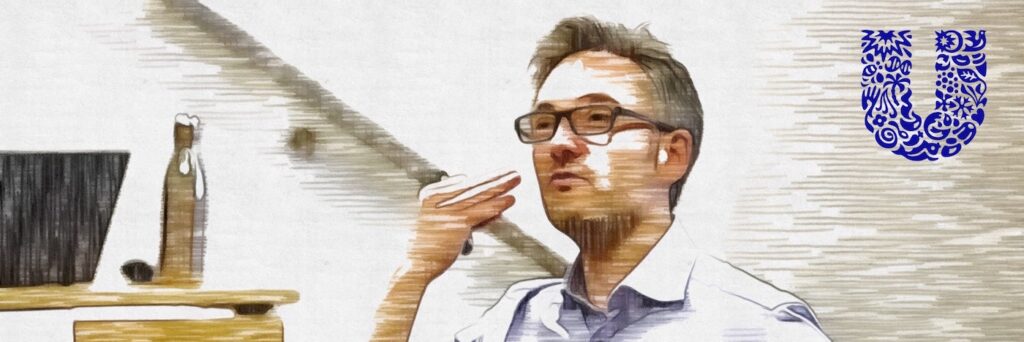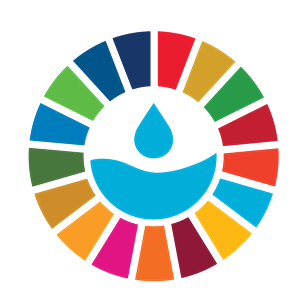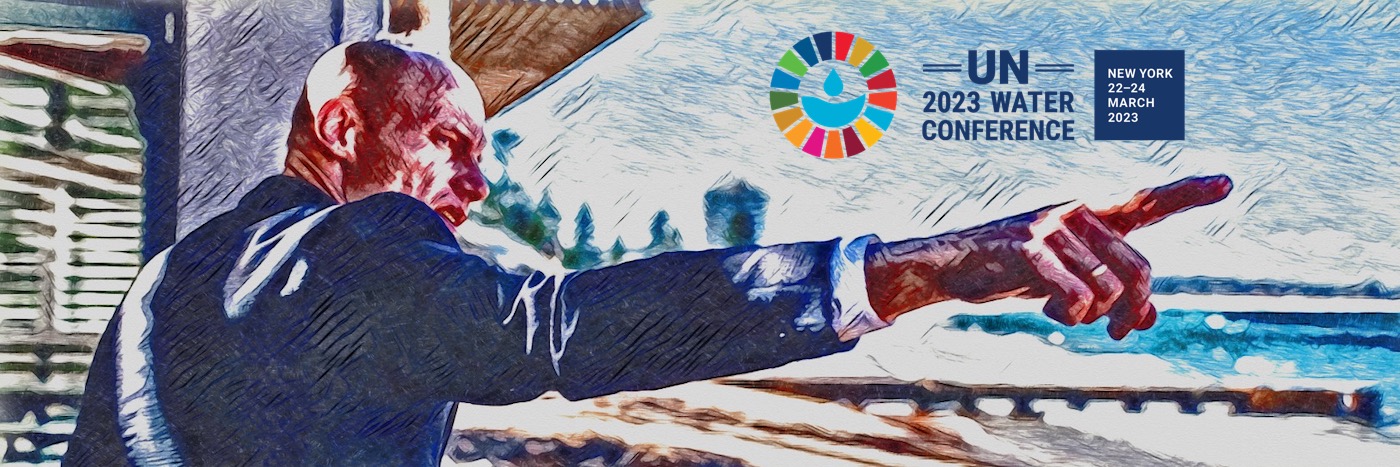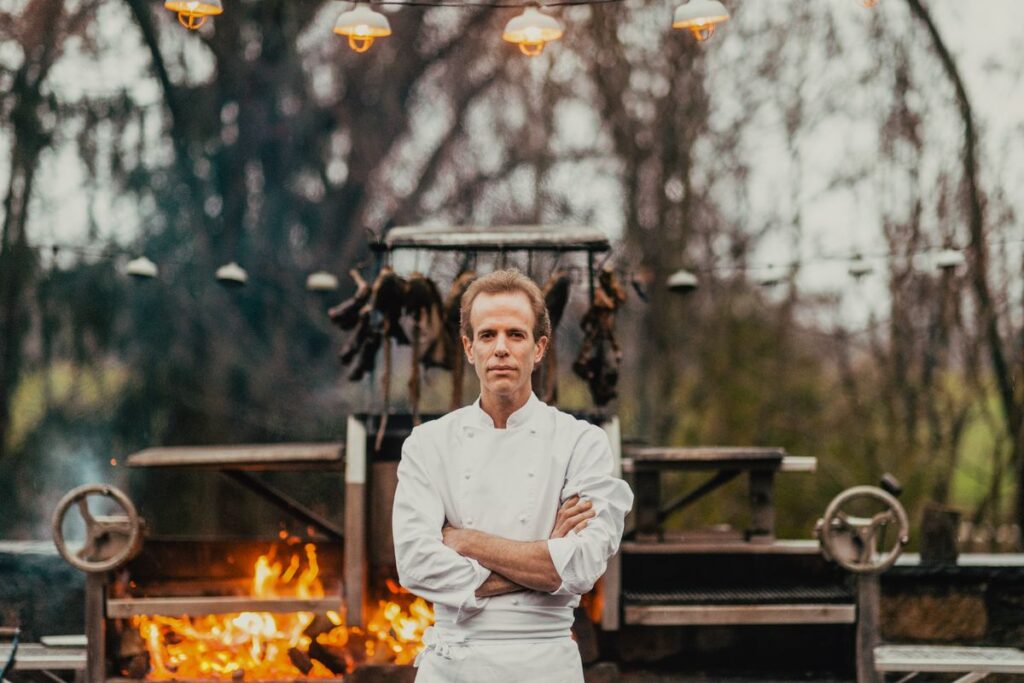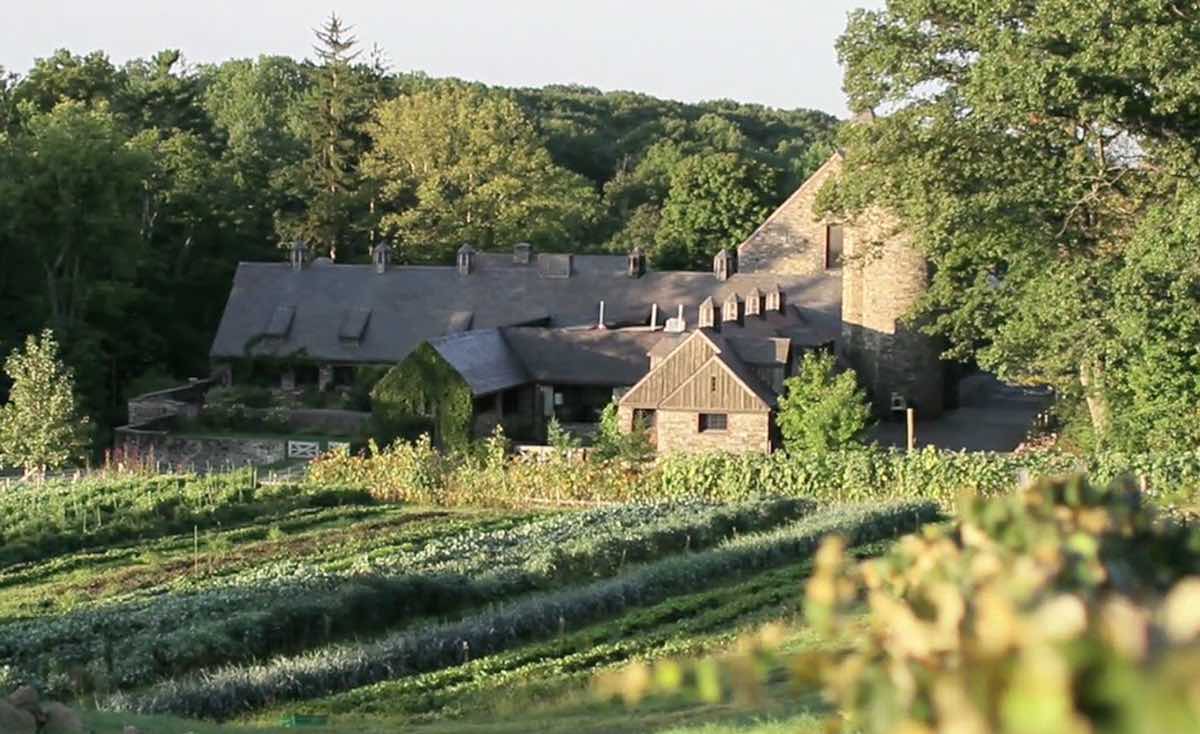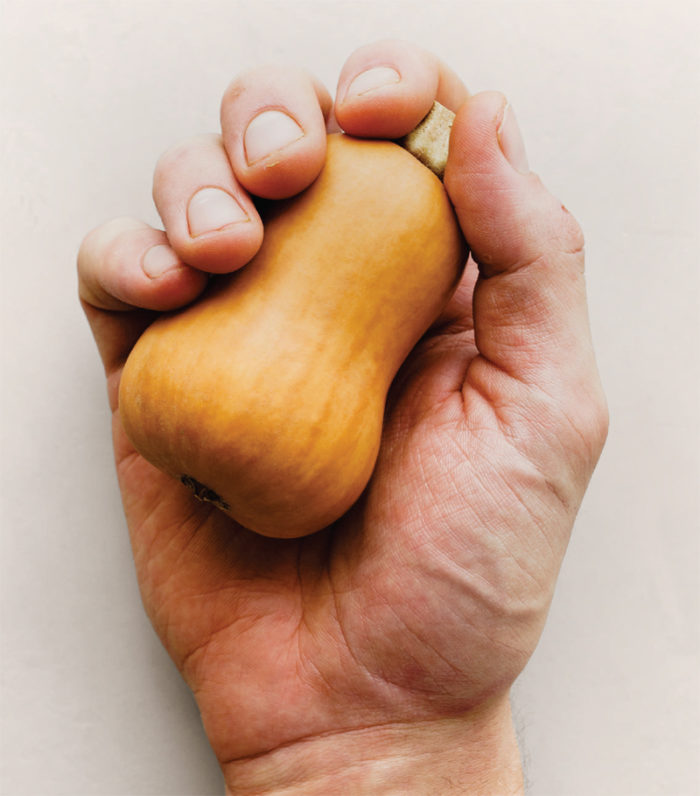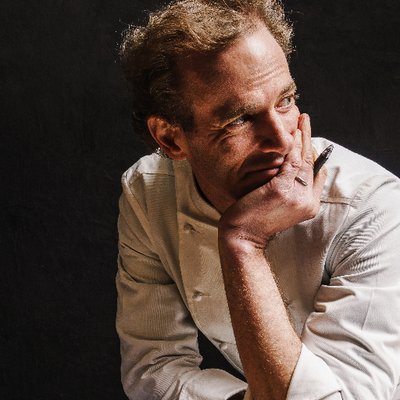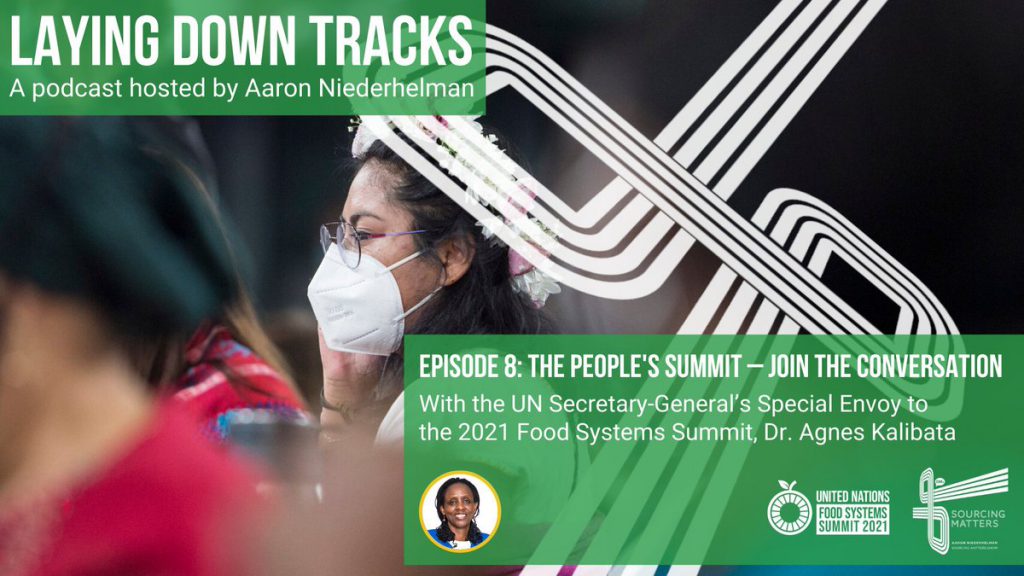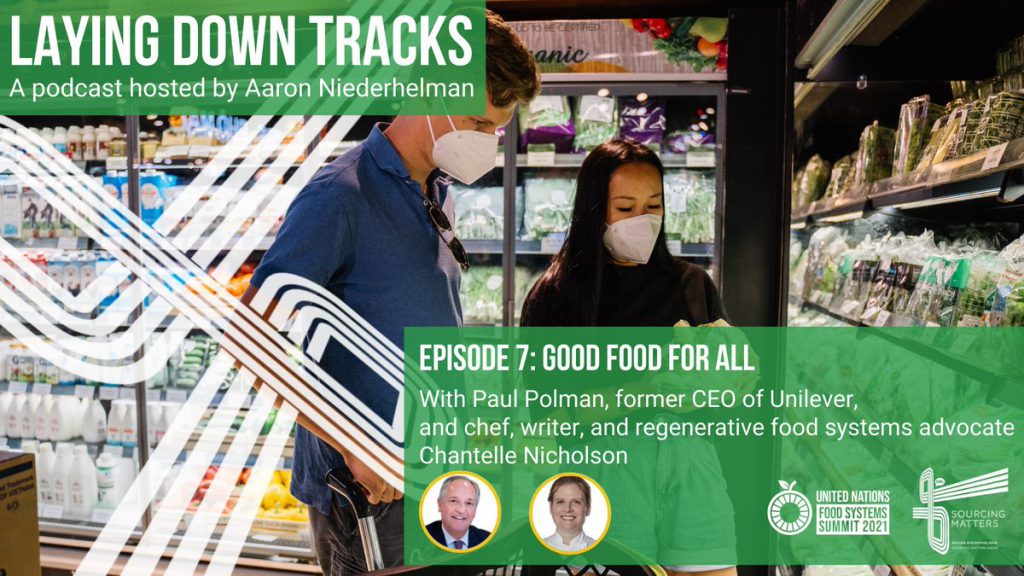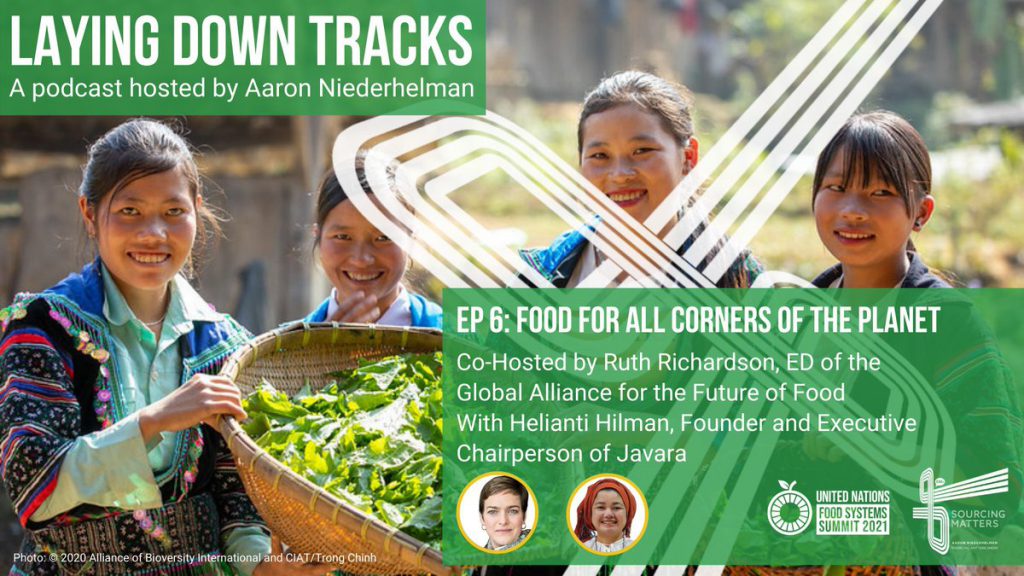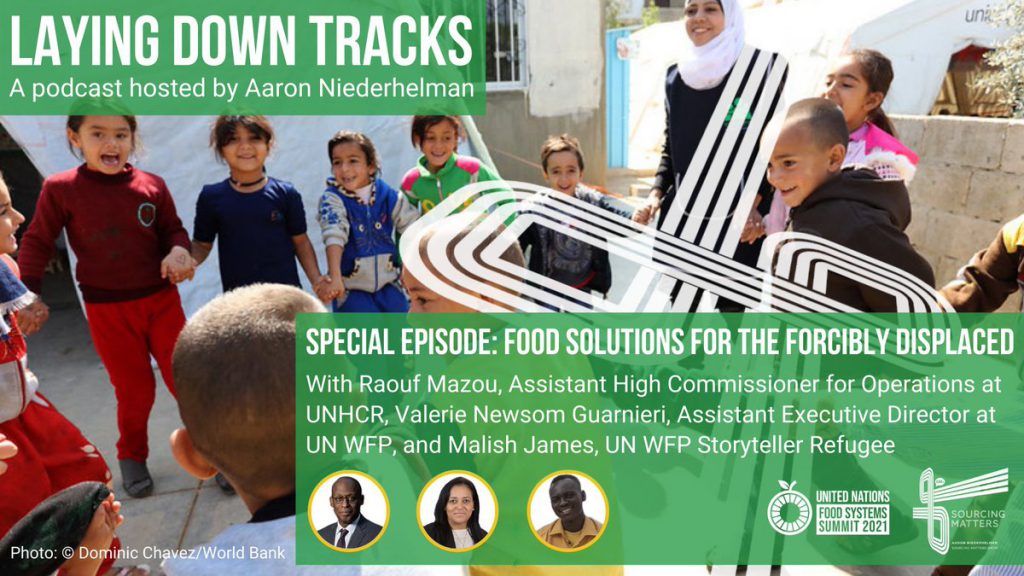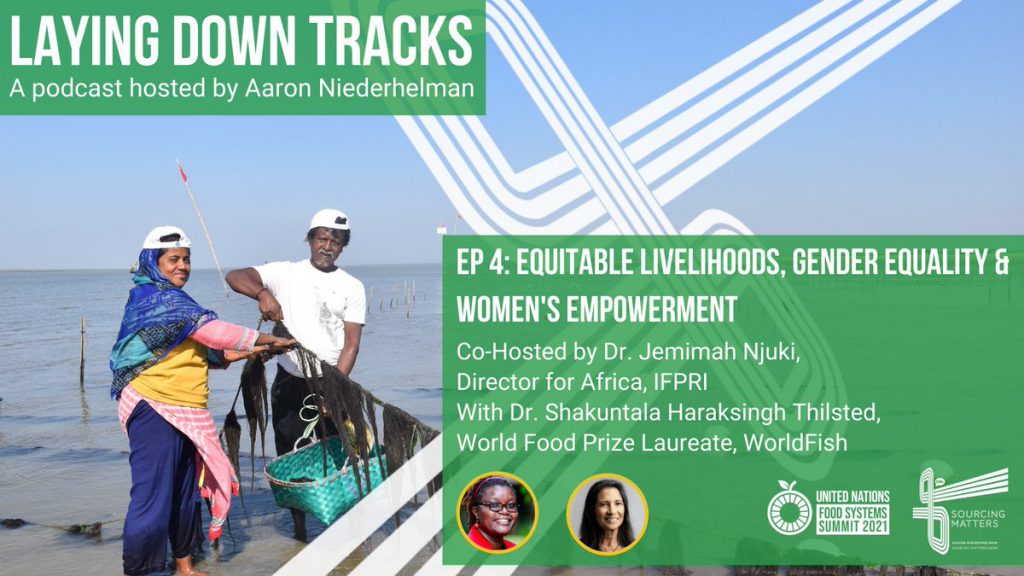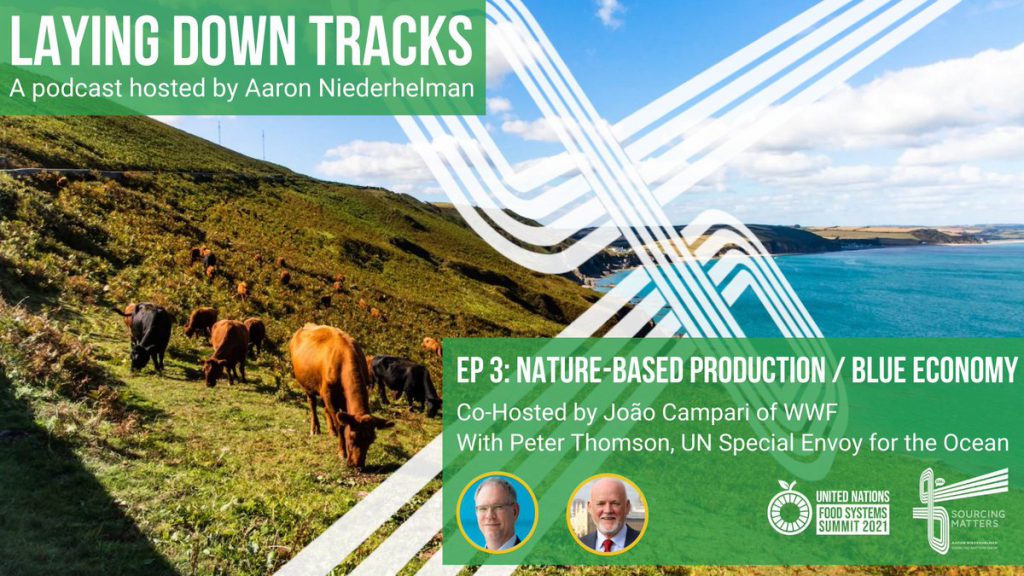Forces of Nature is a talkshow miniseries featuring dynamic leaders from across food & environmental movements. Tune-in for a dose of optimism.
– six-part miniseries –
SARA FARLEY
VP, Global Food Portfolio
The Rockefeller Foundation
FORCES OF NATURE
–
–


Food as Climate & Social Action
Sara Farley in episode 114
.
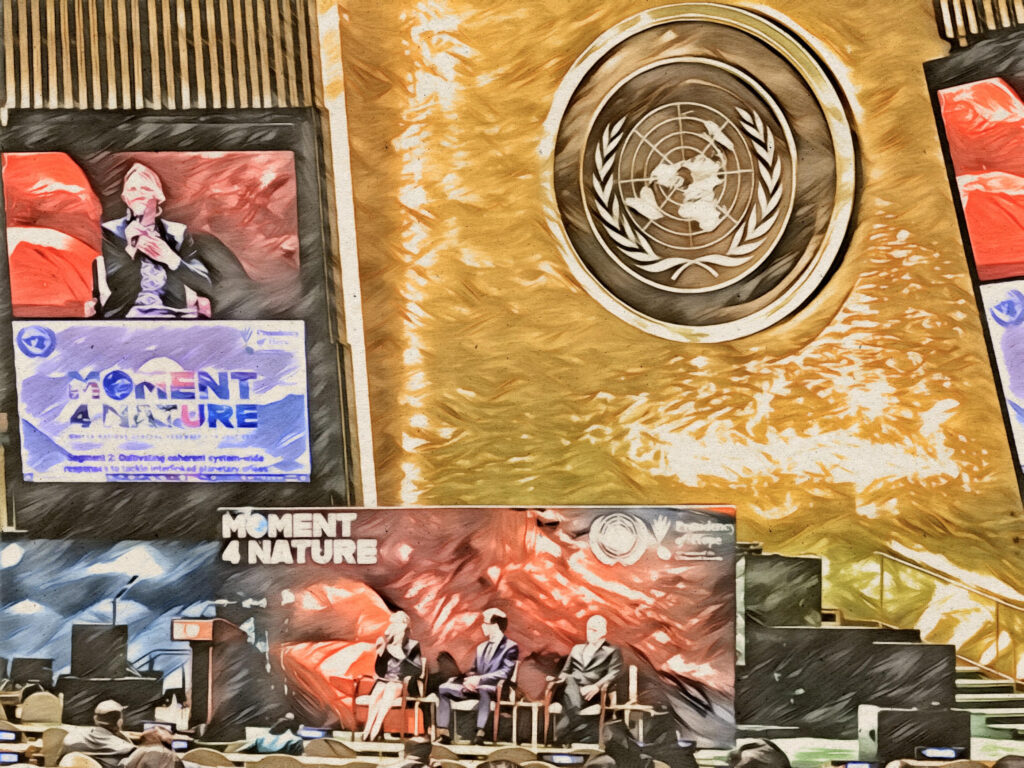
–
by: Aaron Niederhelman
FEEDING A SHRINKING PLANET
HAS BECOME A BIG TICKET
AGENDA ITEM
For 110 years it’s been the mission of the Rockefeller Foundation to promote the well-being of humanity throughout the world. But this year something has changed. The existential threat of a changing climate has become so great that they’ve evolved their primary focus to become a climate-first foundation. The reality is the climate crisis is a human crisis, so this all makes sense. Looking ahead as conditions and impacts worsen, benefactors like The Rockefeller Foundation seek strategies to stabilize the planet and improve the human condition in one fell swoop.
We’ll see climate action in many forms over the next decade, but what feeds us may just possess the greatest potential to drive lasting change across large and diverse populations. Food and its production impact everyone; everyday. In fact, improving food systems and supporting the proper management of the resources required to produce more food in the years ahead is a pillar of the Rockefeller Foundation’s Climate-First mission.
From reducing externalities, protecting biodiversity, evolving extractive and input heavy production models, promoting ample nutrient security, banking carbon and reducing wasted food – improving the food system is chock-full of opportunity where sound investment leads to actions with mutually-beneficial rewards for people and planet. It’s clear that actions to improve food for more has potential for sustained impact on all.
“Climate change is already hurting the most vulnerable first and worst. If the world continues with business as usual, and the planet grows warmer by 3 degrees or more, life will become unbearable for many of the people we serve.”
– Dr. Rajiv J. Shah, President of The Rockefeller Foundation
BIG INVESTMENT IN RESPONSIBLE FOOD
With a storied history supporting the greater good, The Rockefeller Foundation investments in food-as-climate-&-social-action will cast a long-shadow over the future of giving. Furthermore, documenting the lasting wins for the poorest to the wealthiest populations will influence State sponsored resources and traditional investment dollars seeking the mutually-beneficial returns from taking food actions.

watch the full 40 minute episode
.
FOOD AS CLIMATE & SOCIAL ACTION
Sara Farley leads the global portfolio for The Rockefeller Foundation’s food team. In this capacity she is driving the Foundation’s inaugural regenerative food systems strategy and leading the articulation of a “Big Bet” for Food + Climate for the foundation. Sara is leading such signature initiatives as the Food Systems Vision Prize, and directs the diet quality portfolio and is expanding the good food purchasing portfolio and true cost accounting work globally with the aim of shifting the diet quality of 500 million underserved people by 2030.
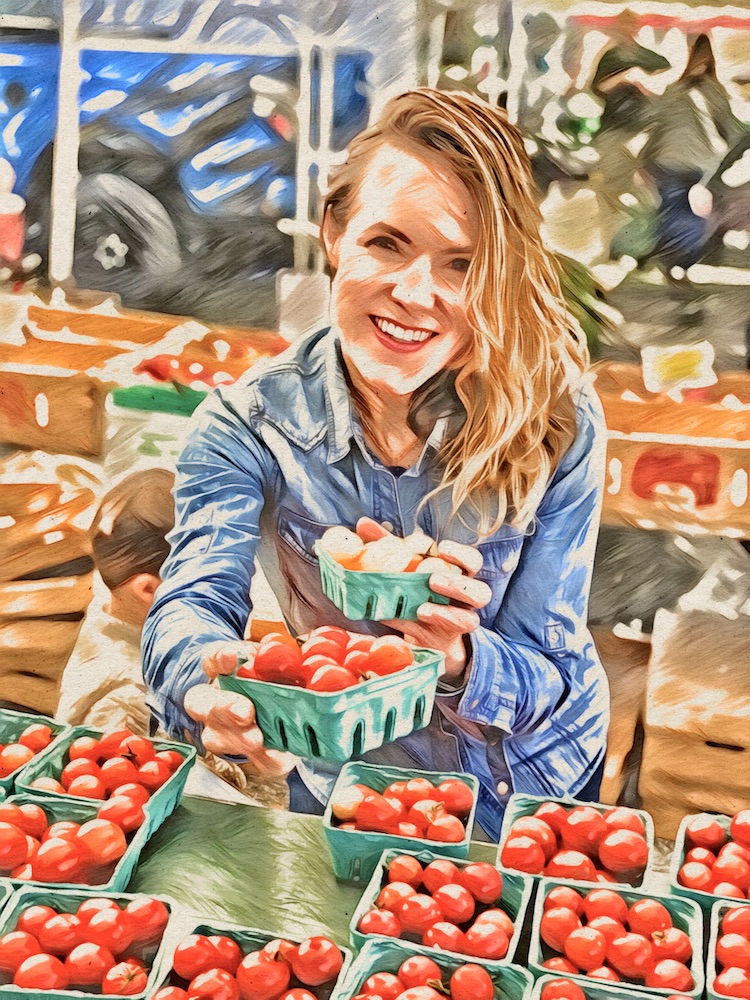
#ForcesOfNature
“We’re working to advance the evidence. Where looking at how to build a network of proof points.
We’re evaluating how to leverage those proof points to activate Regenerative Natural Resources and all of those wonderful (supporting) conversations, to transition from synthetic conventional agriculture to this alternative paradigm.”
– Sara Farley

The Rockefeller Foundation has earmarked fundamental changes to improve the U.S. food system
The Rockefeller Foundation has explored how to transform the U.S. food system with long horizon investments to promote healthy people, thriving communities and a stabile planet. The components detailed in their research are as follows:
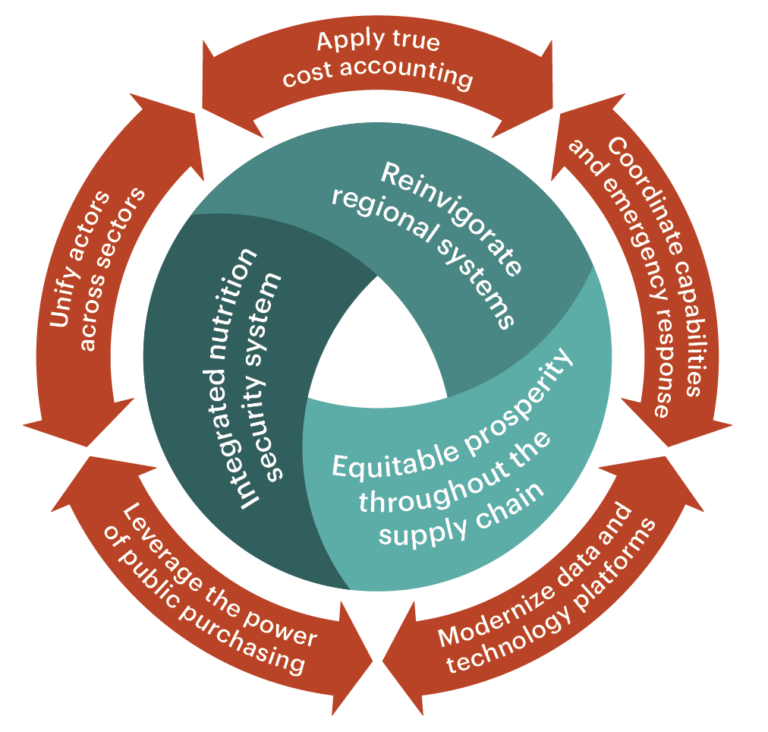
COMPONENTS FOR CHANGE:
1) Integrated Nutrition
2) Regional Systems
3) Everyone Wins
1) More integrated nutrition security system
- Strengthen nutrition benefit programs to ensure children and families are fed.
- Invest public and private funding in school food programs as anchors of community feeding.
- Expand Food is Medicine.
2) Reinvigorated regional systems
- Ensure relief and stimulus policies improve the resilience of supply chains and strengthen local systems.
- Direct the purchasing power of large institutions along a values-based (equitable, ethical, sustainable) supply chain.
3) Equitable prosperity throughout the supply chain
- Enforce mandatory guidelines to keep workers and the food supply safe.
- Provide credit, loan servicing, and debt relief for farmers and ranchers.
- Increase prosperity of farmers, ranchers, and fishers by more equitably distributing risk and profit.
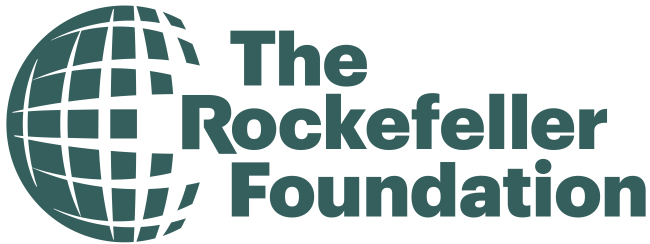
“3 billion people can’t afford a healthy diet. That’s almost 50% of the people on the planet. And then, many of the people that just barely can afford a healthy diet are reliant on government systems that have not been optimized for the sustainability footprint, and often not optimized for nutrition.”
– Sara Farley
promoting Regen
as food & climate solutions for a just and stable tomorrow
SARA FARLEY
VICE PRESIDENT
GLOBAL FOOD
PORTFOLIO

REGENERATING ACROSS A SPECTRUM
At the Rockefeller Foundation they have embraced the benefits of regenerative food production across a spectrum. The transition away from big ag won’t be easy, but from what Sara tells us – it’s all about the long game. “Regenerative agriculture is not just one thing. It covers a range of outcomes, and the practices to achieve beneficial impact on varied landscapes,” says Farley, VP of Global Food Portfolio at The Rockefeller Foundation.
Sara talks to us about just how important it is for like-minded benefactors to collaborate on big Regen efforts moving forward. “It’s not just the size of the undertaking to transition towards regenerative that requires funders to go at it together; it’s because of the multiple complexities that we’ll face in supporting the transition,” explains Farley.
“Well, sure… regenerative is just a term for the natural ecological process where everything is renewed in the process of using it. Regenerative agriculture is knowing how to work within that natural system to grow our food.”
– Fred Kirschenmann, SMs guest ep. #001
The Rockefeller Foundation Regen Overview
Regenerative agriculture is a holistic approach to food production that starts with the soil and includes the health of people, animals, and the environment. Regenerative farming principles have roots in Indigenous traditional ecological knowledge and food systems that have been with us for thousands of years. Now, braided with fresh innovations, they offer direction and hope for a planet grappling with the extremes of climate change and an industrialized food system operating outside of planetary boundaries.

GABE BROWN’S FIVE PRINCIPLES OF REGENERATIVE AGRICULTURE:
- No disturbance (no-till, no-synthetics)
- Bolstering Soil’s Natural Defense (the outer-layer protecting all that life)
- Bio-diversity (marrying nature’s way keeps the system healthy)
- A living root in the ground as long as possible (cover-crops & seasonal diversity)
- Animal & Insect integration (nature relies on the system working together)
– Gabe Brown, SMs guest ep. #052
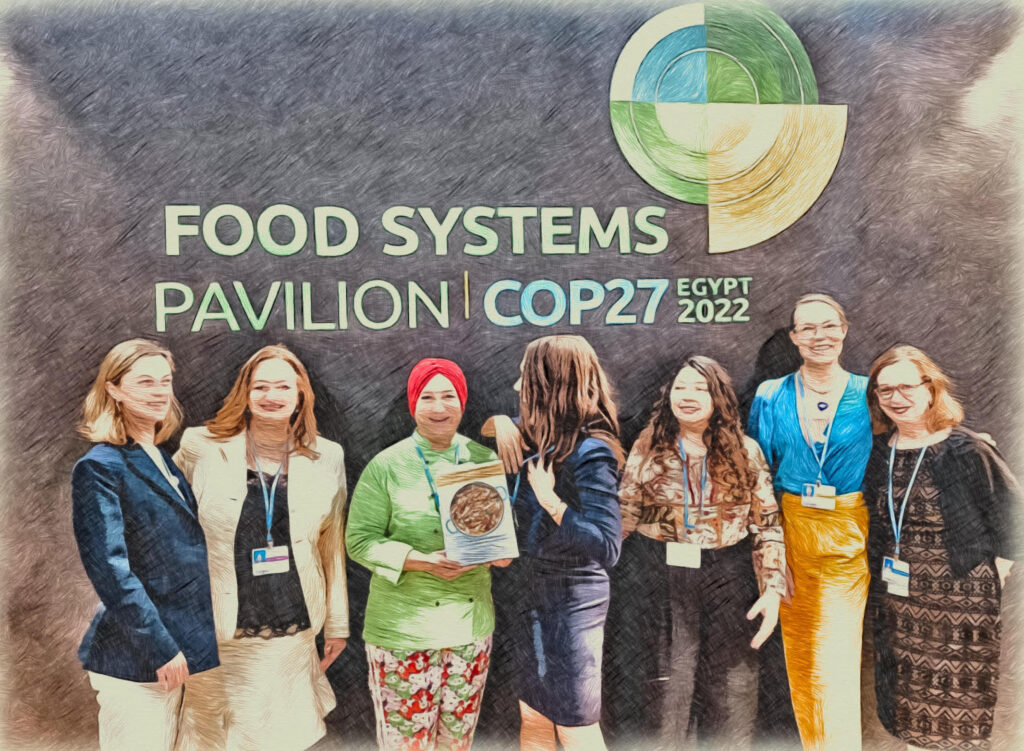
GETTING BETTER WITH EVERY COP
“Food arrived at COP27. We no longer the little kid at the back of the room. We did have a voice. There were 200 food focus in Egypt. There 4 or 5 Food-focused pavilions. It felt like a feast. What was also existing was the food conversation wasn’t only in the food pavilion, but food was central to climate discussions in all COP pavilions,” Sara shared while explaining some of the good things that came from COP 27.
“I think within the food tent we need more discipline. We need to get clearer and sharper for what we’re advocating for. Let’s tighten up the aperture. Let’s become very clear about high ambition countries. Let’s come clear about Regen financing mechanisms, and I think we’ll come to a shorter list to COP 28.”
– Sara Farley on what to expect in UAE
COP 28 will take place in the United Arab Emirates. The summit will be held at Expo City Dubai from November 30th until December 12th, 2023. Enthusiasm and anticipation are already building. Farley explains, “There’s a series commitment going into COP28. With the leadership that minister Al Mheiri and her team are showing in the UAE to put food at the absolute center of this year’s climate summit will be. We would be foolish not to take the opportunity and really get serious about trying to be as deeply collaborative as we can to advance that agenda.”
–
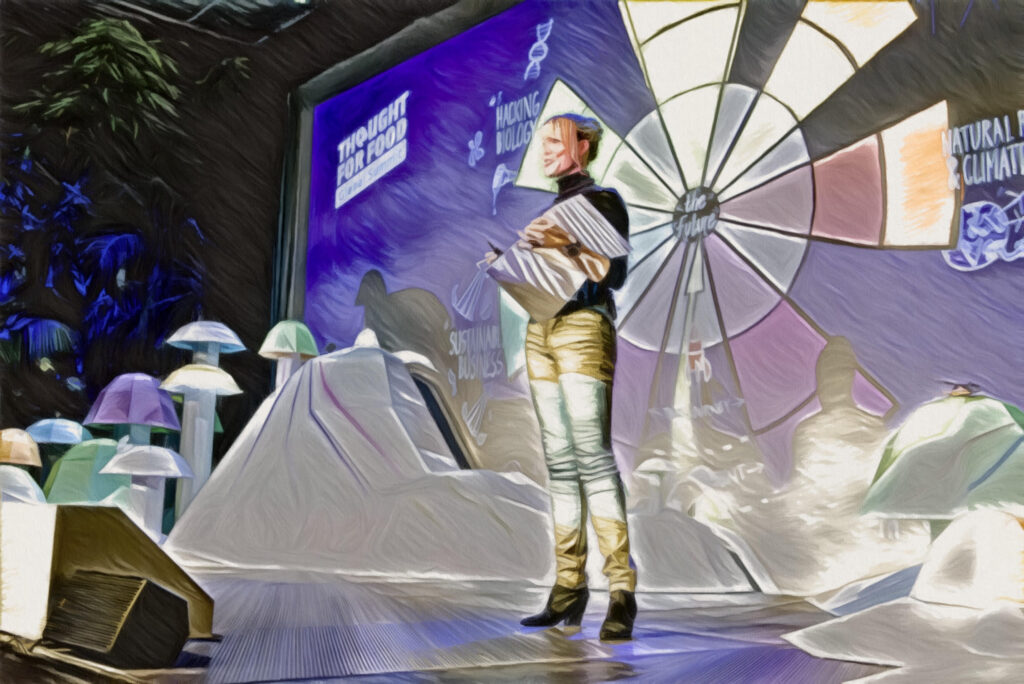
–
LASTING CHANGES
Previously to the Rockefeller Foundation, Farley co-founded the Global Knowledge Initiative, which she led for a decade, nurturing it from a concept to an organization designated as one of the “Top 100 Social Innovations for the next century.” During her time at GKI, Sara cultivated a dynamic team that she led in the design and execution of GKI’s programs in systems research and evaluation, network optimization, and collaborative innovation strategy setting, work that included serving as The Rockefeller Foundation’s Social Innovation Lab on Waste & Spoilage.
With “80% of the $600-800 Billion in global (food) subsidies still supporting industrial agriculture,” Sara sees a great deal of upside for the whole Regen movement. According to recent Rockefeller Foundation analysis, between $5B – $13B is being invested in Regen. So, what kind of critical-mass would develop with even 10% of the total subsidy budget being allocated to Regen?
One idea that the Rockefeller Foundation is spitballing with other funders is the creation of acceleration facilities that would offer technical assistance and matchmaking into current fragmented regional landscapes. The ultimate goal here is strategic investment for lasting climate & social benefit.
.
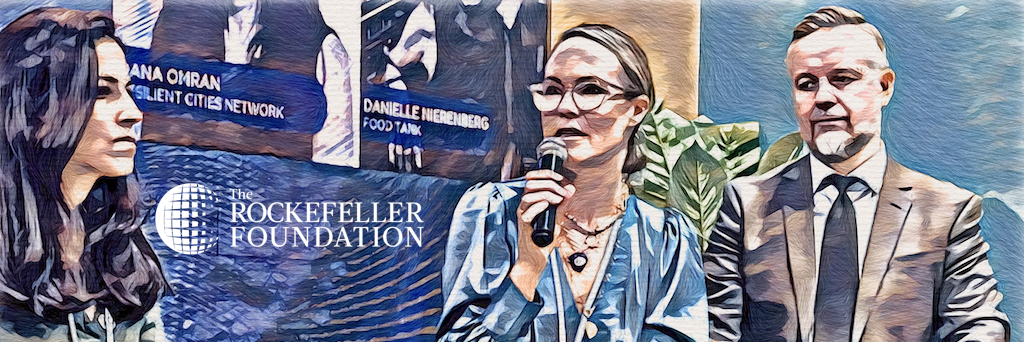
.
CALL TO ARMS
“For The Rockefeller Foundation food team – our food & climate strategy is around Regen and agro-ecology. We will be working on: 1. a (food quality) measurements framework, 2. this global network – connecting the proof points, 3. trying to link-up, mobilize and facilitate multiple funders to bring substantial financial commitment to Regen.”

– Sara Farley, ep. 114 guest
.
(t) @InnovationWoman
photo credit: Rockefeller Foundation || Sara Farley Twitter media
FORCES OF NATURE
Sara Farley
“I think within the food tent we need more discipline. We need to get clearer and sharper for what we’re advocating for. Let’s tighten up the aperture. Let’s become very clear about high ambition countries. Let’s come clear about Regen financing mechanisms, and I think we’ll come to a shorter list to COP 28.”
–
–
–
.
FORCES OF NATURE – series
As part of the FORCES OF NATURE series, in this episode you’ll hear from inspiring folks making good things happen to benefit people and planet.
–
.

.

.



